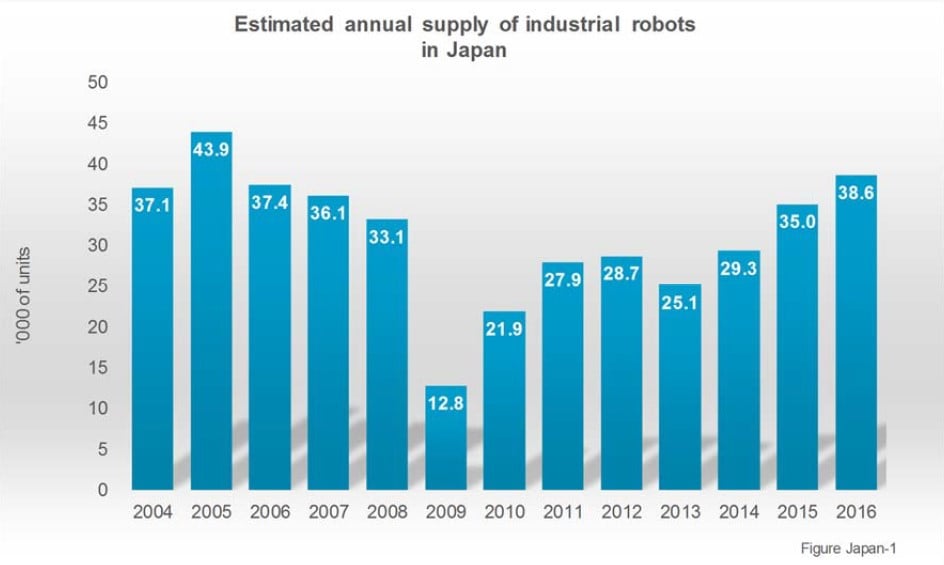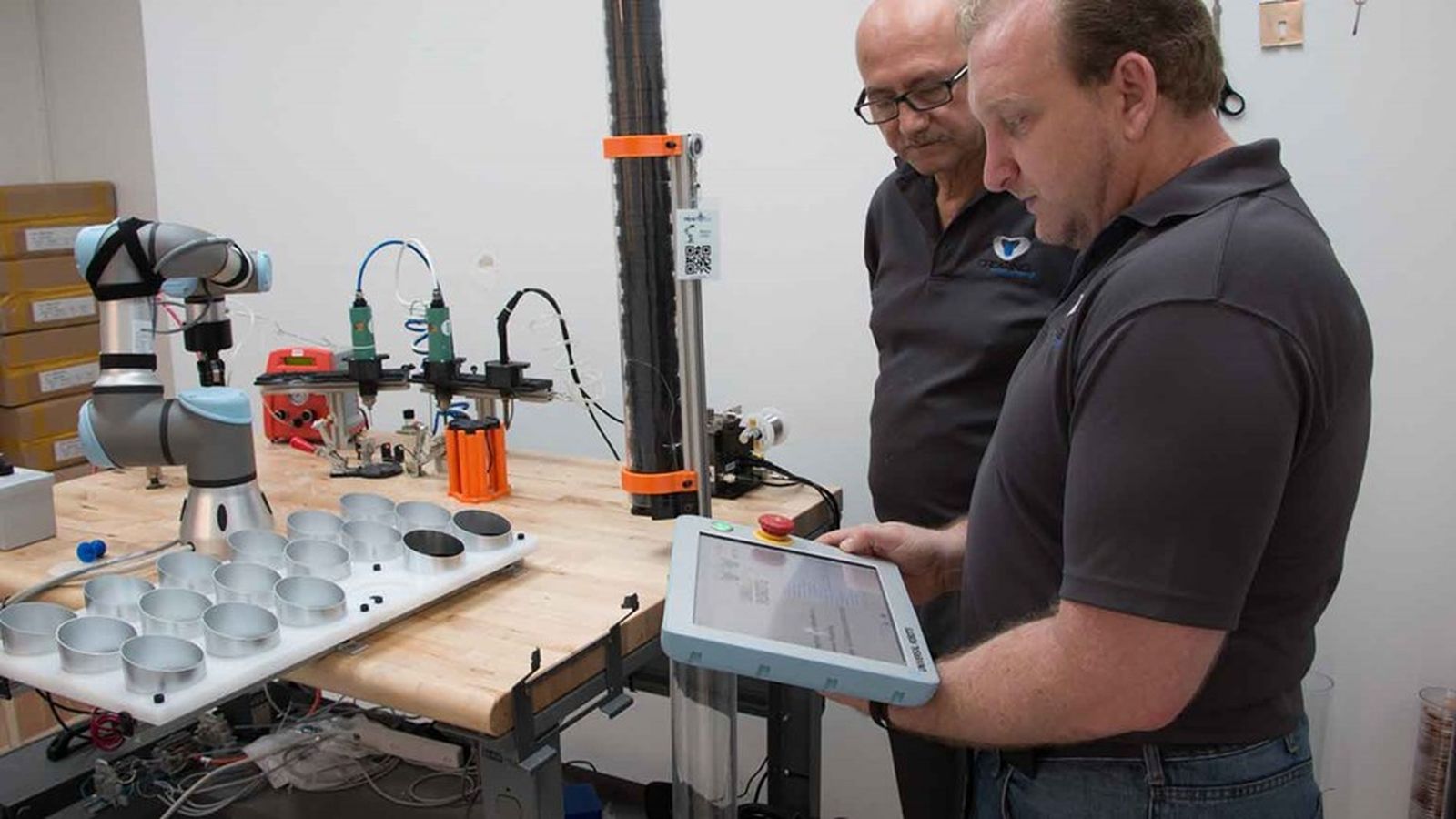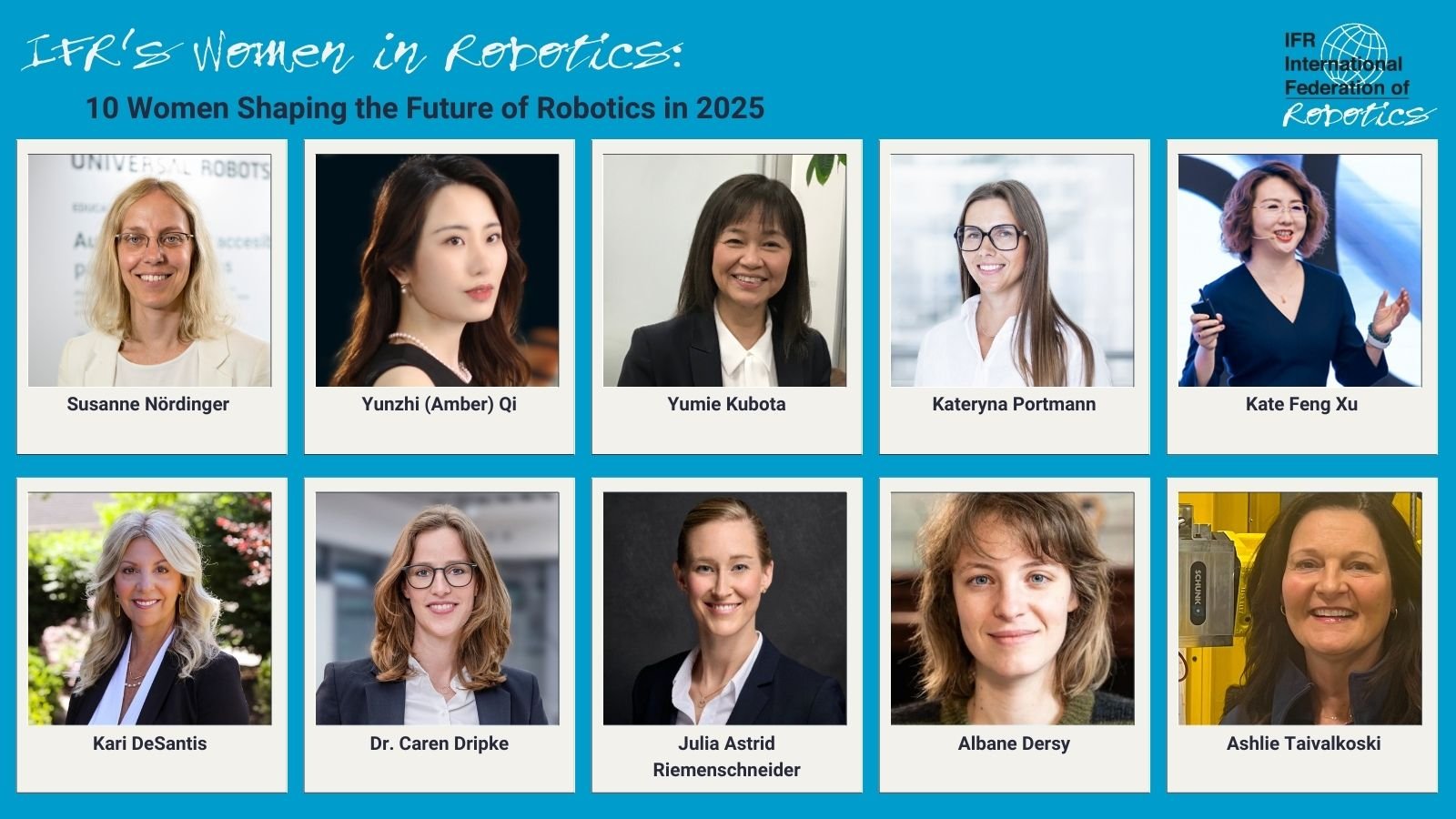
The total number of service robots for professional use sold in 2015 increased by 25 percent. The sales value surged by 14 percent to a new record of US$ 4.6 billion. By 2019, sales forecast indicates another rapid increase up to an accumulated value of US$ 23 billion for the period 2016-2019.
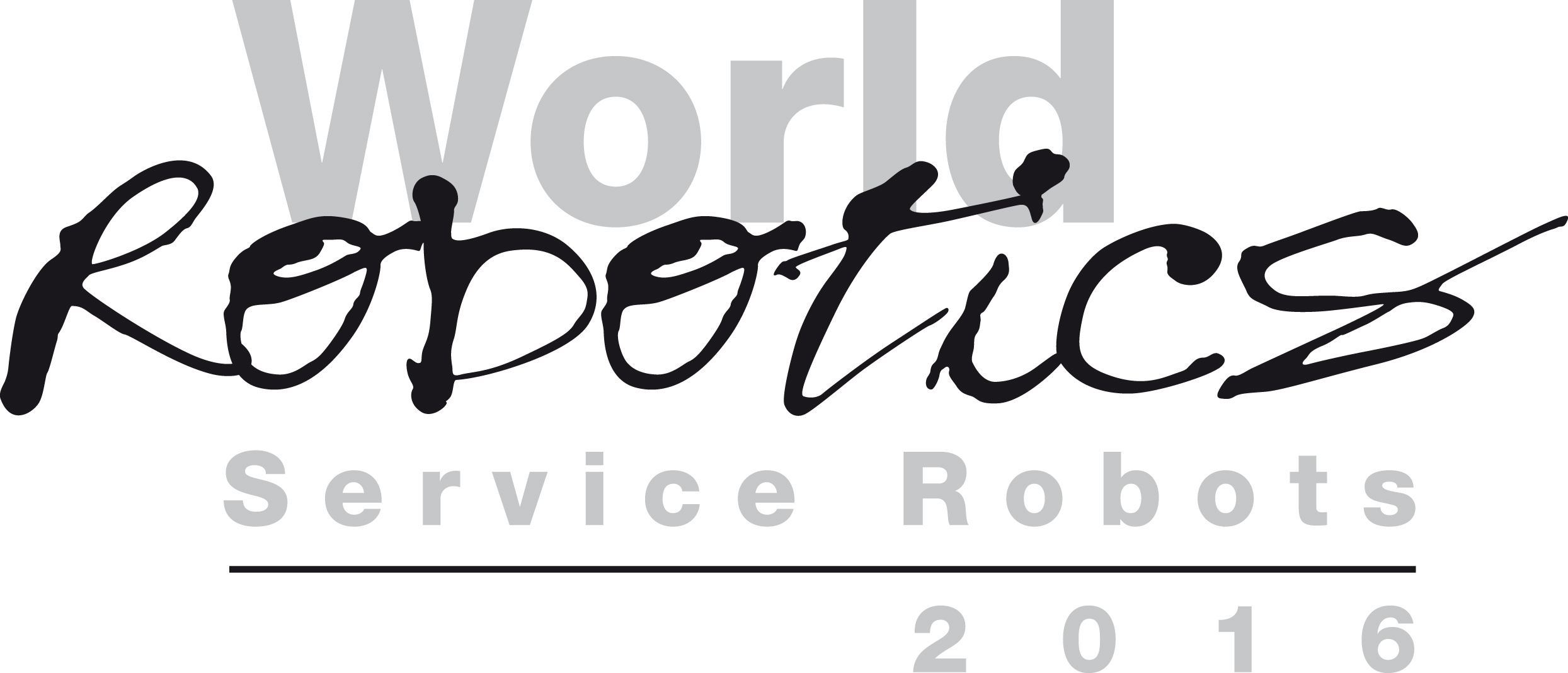
In terms of units, logistic systems make up 53 percent of the total forecast of service robots in this segment. Service Robots for personal and domestic use surged by 16 percent in 2015 to a value of US$ 2.2 billion. Between 2016 and 2019 estimated sales will rise up to an accumulated value of US$ 22 billion.
“The demand for service robots is seeing a historic breakthrough”, says Joe Gemma, President of the International Federation of Robotics, “In addition to the already established business with professional service robots the personal and domestic segment is increasingly dynamic. Growth forecasts between 2016 and 2019 are just excellent.”
Service robots for professional use
In the segment with service robots for professional use, sales of medical robots rank ahead of agricultural and logistics robots. In all three top groups, growth dynamics are expected to be strong during the period 2016 to 2019: In the medical segment - with its major fields of applications in diagnosis, surgical assistance and rehabilitation - sales value is expected to rise to US$ 7.2 billion. In agriculture - especially with milking robots - an increase up to US$ 5.7 billion is expected. In the logistics systems - with the major share of automated guided vehicles (AGV) - a sales value of US$ 5.3 billion is expected. Demand in the logistics has already seen strong growth from 2014 to 2015. The number of units sold rose by 50 percent to 19,000. The sales value surged during the same period by 52 percent to US$ 779 million. Based on the manufacturers’ market shares, 81 percent of the logistics systems are produced in the US - only 11 percent in Asia and 8 percent in Europe.

Service robots for personal and domestic use
A sales value of a comparable scope is emerging for service robots for personal and domestic use. The forecast of approximately 42 million sold units taken together will amount to about US$ 22 billion (2016-2019). Broken down by areas of application, household robots are the largest segment - both with the number of units and by market value. 3.7 million of these types of robots were sold in 2015 (vacuum cleaners, lawn mowers, window cleaners) - an increase of 11 percent compared to 2014. Between 2016 and 2019 a sales boom of approximately 31 million units is forecasted. The sales value climbs to US$ 13 billion in this period. Entertainment robots will also see a strong growth in sales. From 2014 to 2015, unit sales of entertainment robots jumped by 29 percent to around 1.7 million units. Especially toys and hobby systems enjoyed great popularity with consumers. The entire segment is projected to increase to a total of 11 million units (2016-2019). The sales value adds up to around US$ 9 billion in the same period.
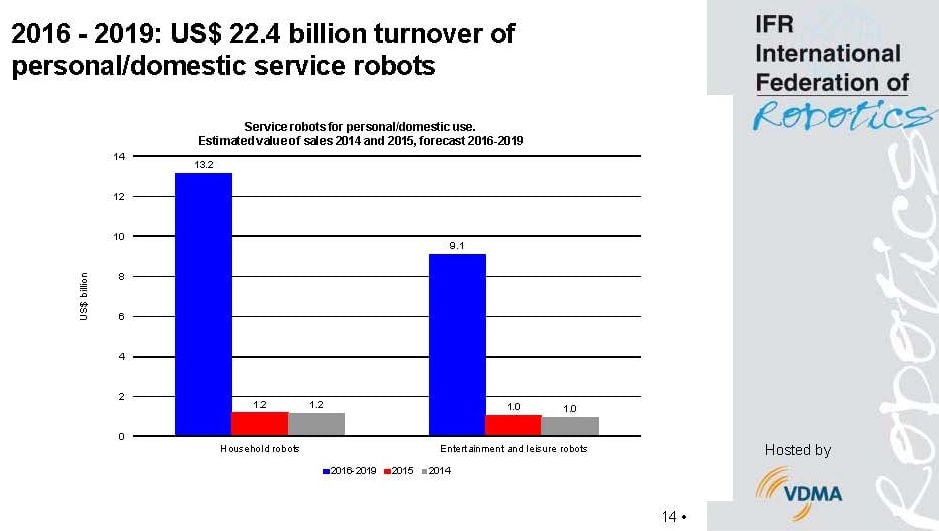
Service Robotics Start-Up Companies
The service robotics segment is currently dominated by European (43 percent) and North American producers (37 percent). Nearly 20 percent come from Asia. It is interesting to see the rising number of start-ups in this relatively new market. Around 620 companies have been identified. With nearly 10 percent of all start-ups, the US is currently in the lead.
Captions for downloadable service robot pictures below
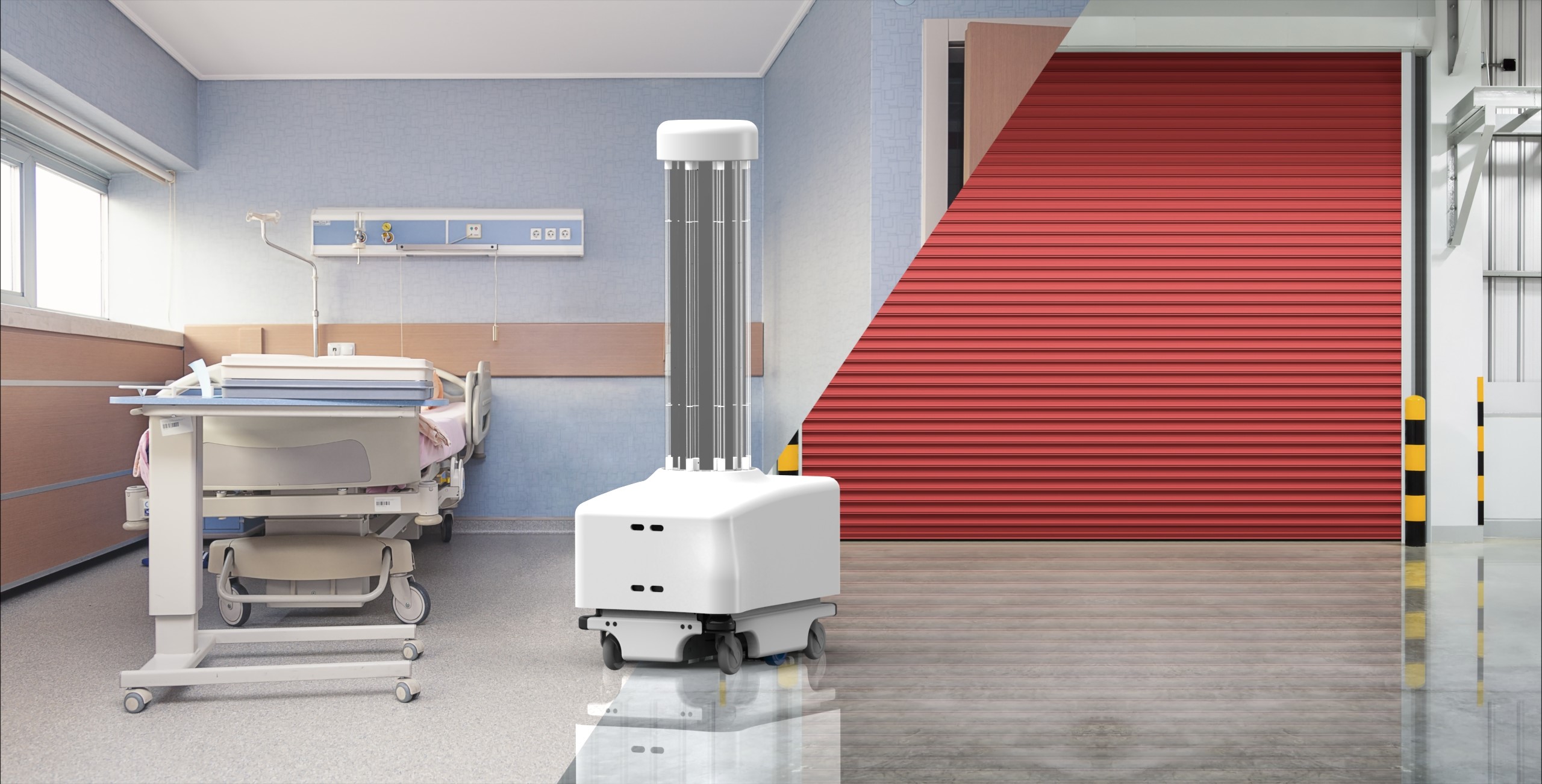
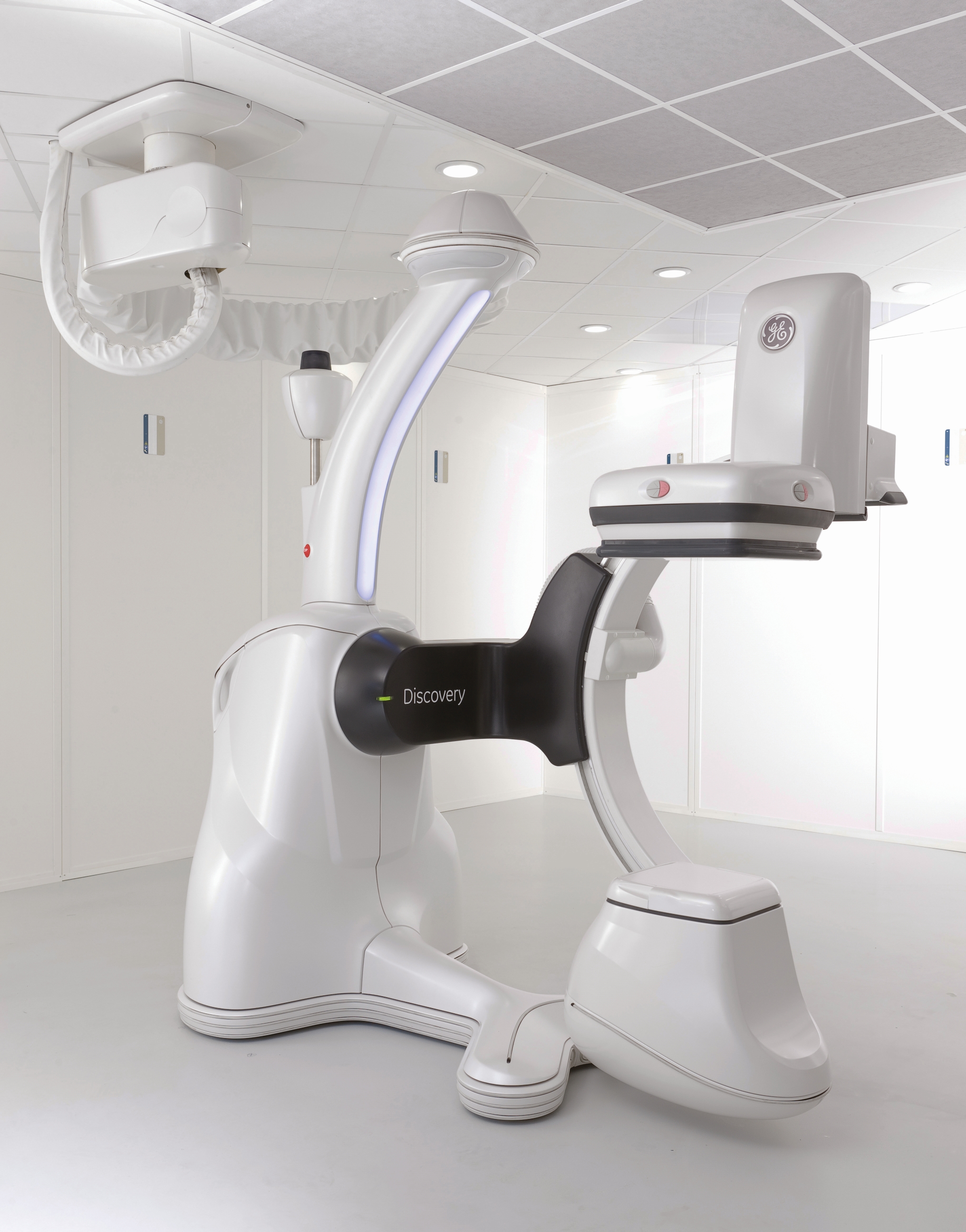
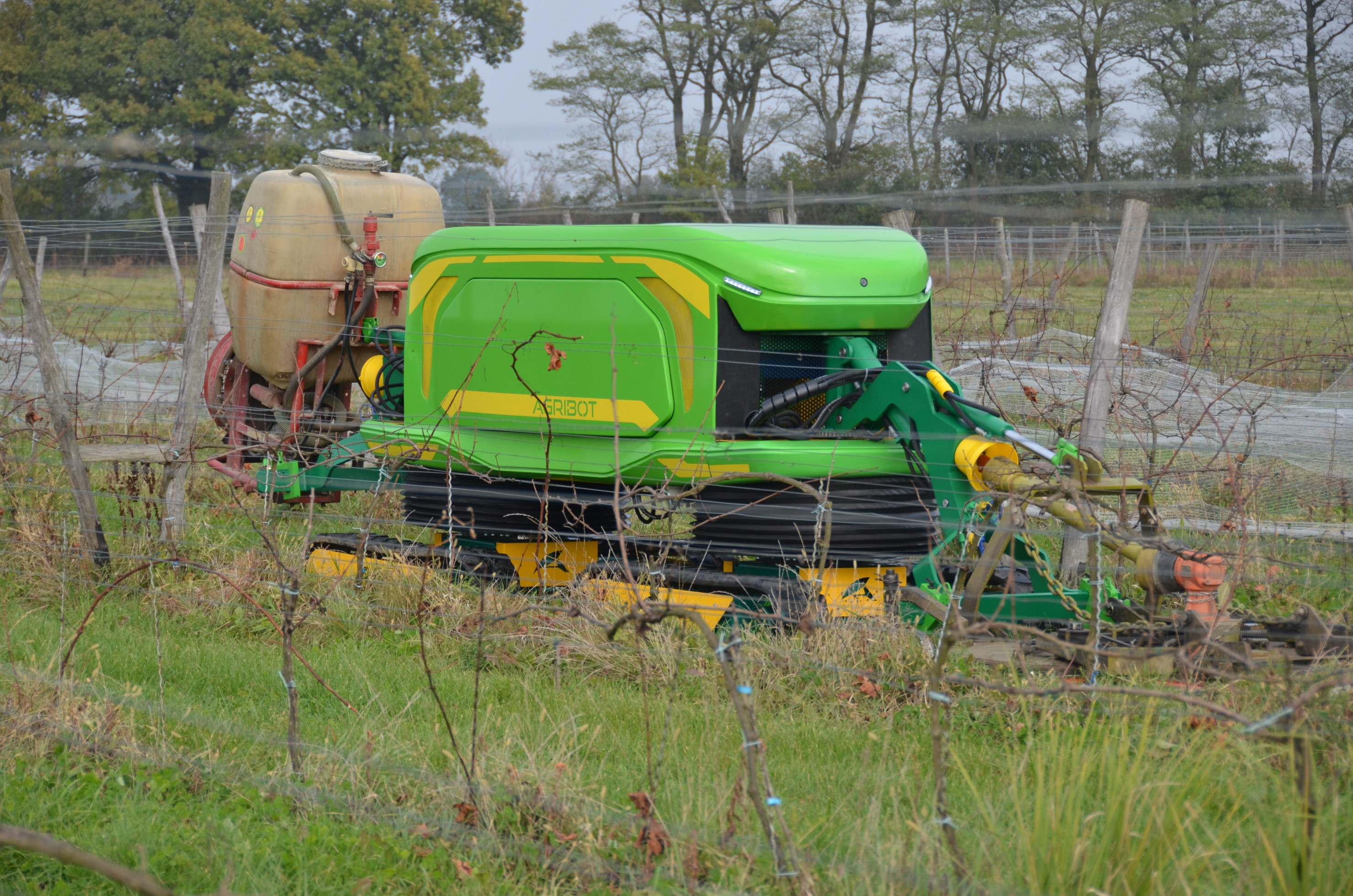
- 2016_10_PR-WR_Agribot_Agricultural-Robot.JPG (3.92MB)
- 2016_10_PR-WR_BlueOceanRobotics_Disinfection-Robot.jpg (550KB)
- 2016_10_PR-WR_BASystemes_Surgery-Robot.jpg (2.05MB)
- Presentation_12_Oct_2016__WR_Service_Robots.pdf (927KB)
- Foreword_WR_Service_Robots_2016.pdf (166KB)
- Executive Summary Service Robots 2016 (65KB)
- Turnover service robots personal use 2015-2019 graph (63KB)
- Turnover service robots professional use 2015-2019 graph (78KB)

